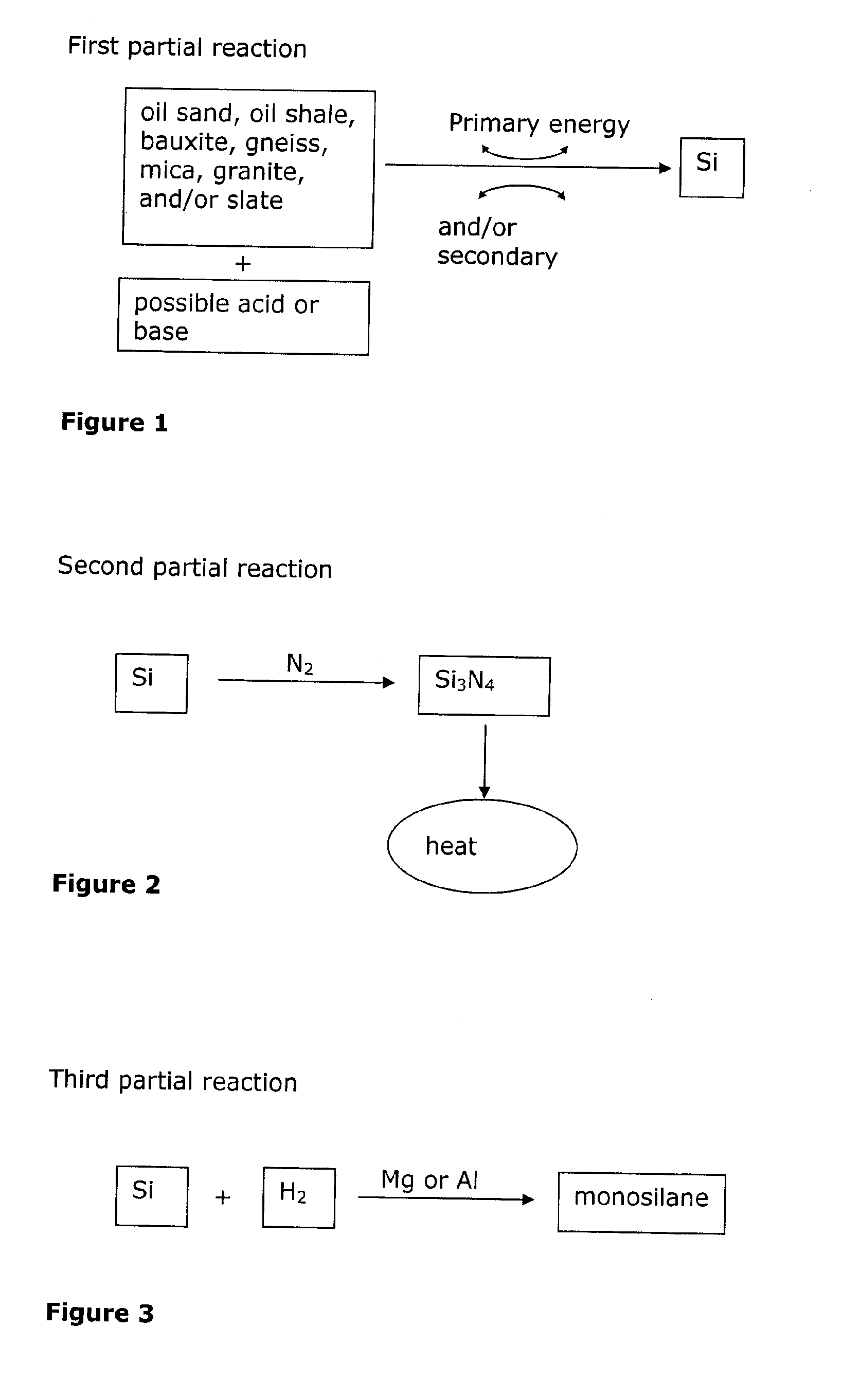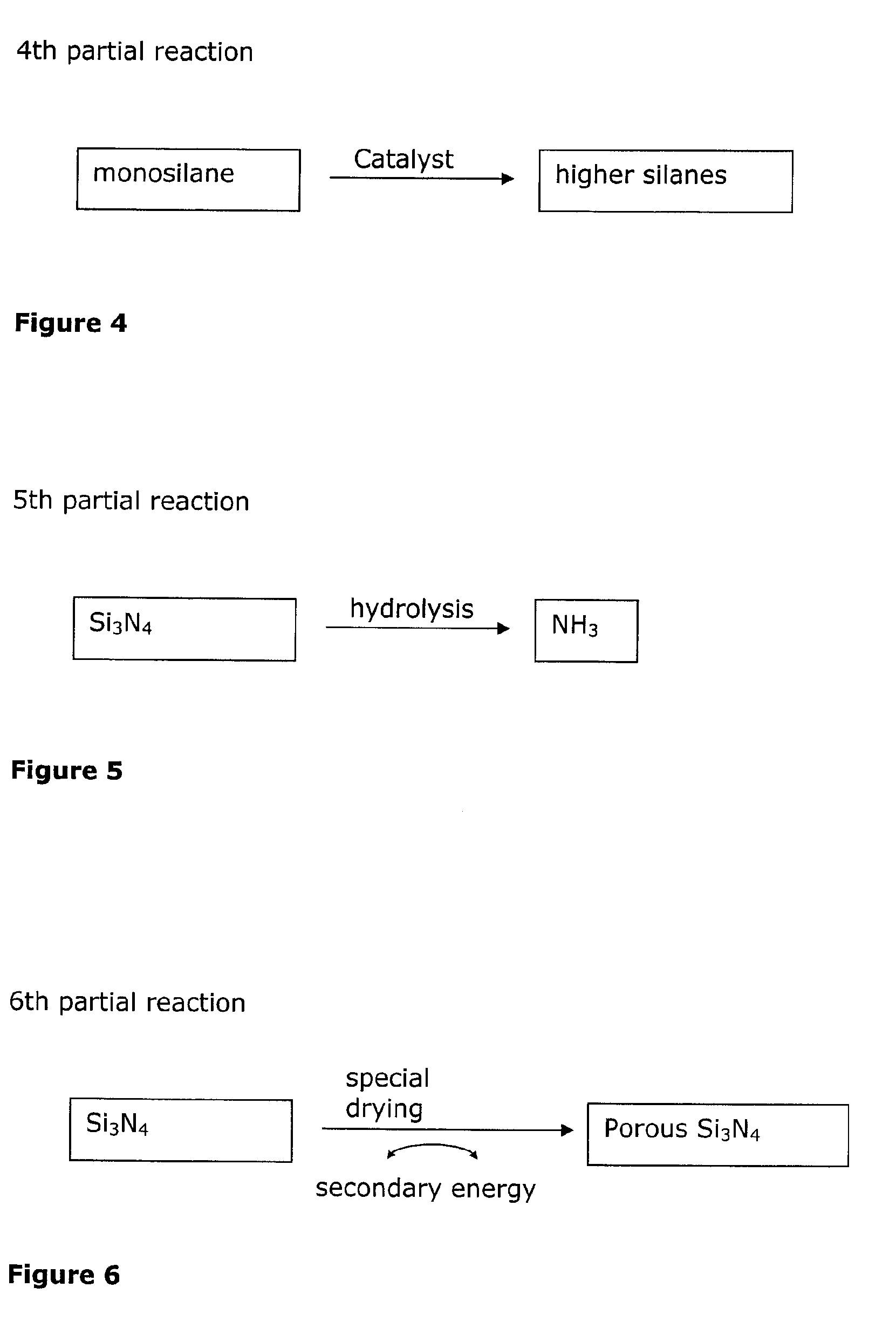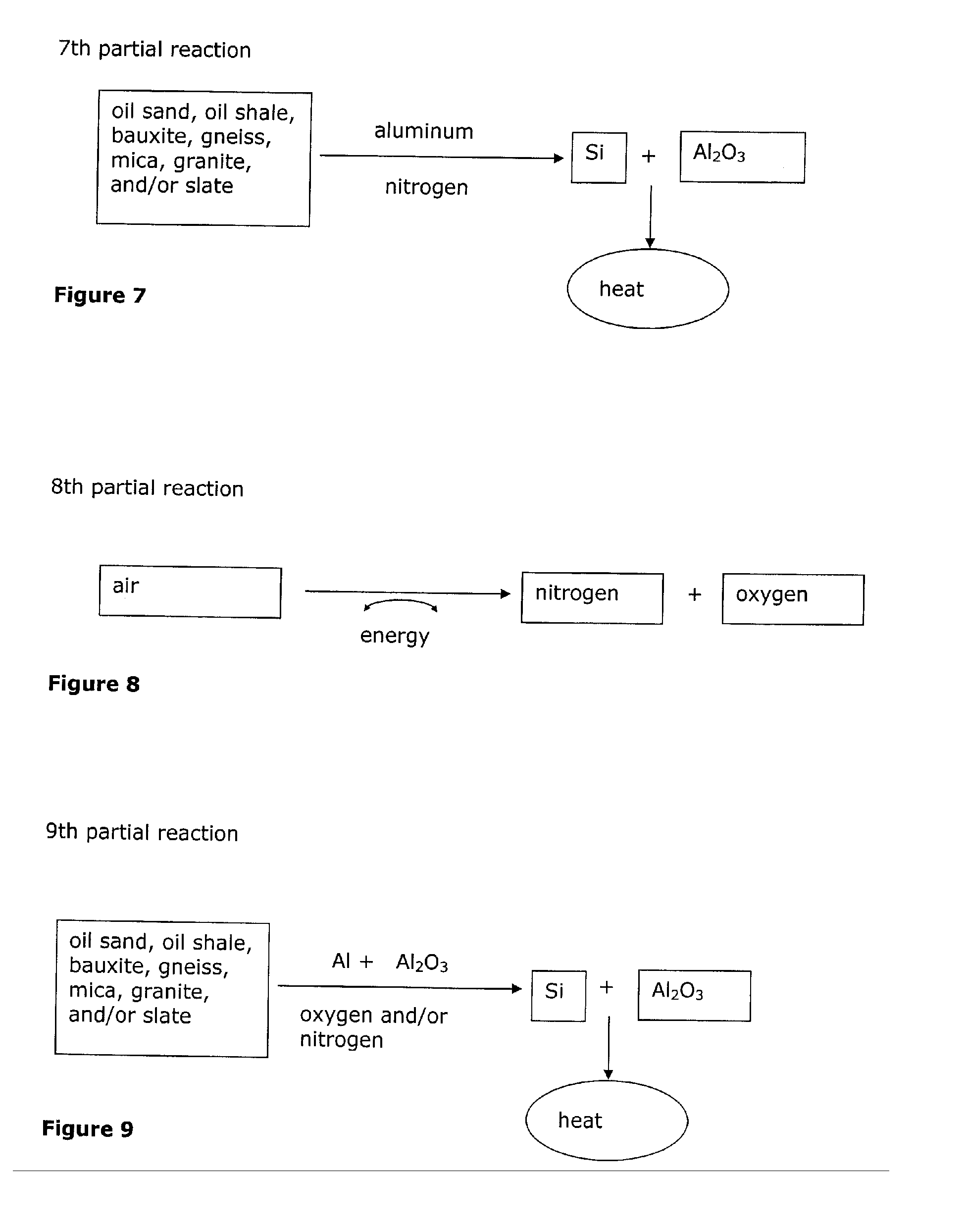Novel cascaded power plant process and method for providing reversibly usable hydrogen carriers in such a power plant process
- Summary
- Abstract
- Description
- Claims
- Application Information
AI Technical Summary
Benefits of technology
Problems solved by technology
Method used
Image
Examples
first embodiment
[0095]A first embodiment is shown in FIG. 16. As may be seen in FIG. 16, two vertically operating combustion furnaces 10 and 20 (e.g., blast furnaces) are situated neighboring one another. The first combustion furnace 10 has an outlet area 11 and the second combustion furnace 20 has an outlet area 21 for the exhaust gases (flue gas) arising in each case. The first combustion furnace is charged with a fossil fuel 12 (e.g., hard coal) and the fossil fuel is combusted using oxygen (e.g., air oxygen). A large quantity of heat is released during this method, which is known per se, which is partially transferred via a heat exchanger 13 to a medium (e.g., water), to drive turbines and thus obtain current using the resulting water steam.
[0096]According to the present invention, the various reactions run in a cascade. In the exemplary embodiment shown, there is a heat coupling to the second combustion furnace 20, i.e., the two furnaces 10 and 20 are directly or indirectly thermally coupled t...
second embodiment
[0101]A second embodiment is shown in FIG. 17. As shown in FIG. 17, a vertically operating combustion furnace 20 is provided. One of the starting materials 22 containing the silicon dioxide is heated in the combustion furnace 20 by the combustion of a primary energy provider (e.g., fossil fuels such as oil and / or tar). Inter alia, silicon arises in this first partial reaction of the present invention. Analogously to the first exemplary embodiment, silicon nitride and heat arise due to the introduction of nitrogen. However, in an alteration of this process, the silicon may also react with carbon to form SiC (see tenth partial reaction). The carbon may originate from the fossil fuels or from CO2, which may be optionally introduced into the furnace 20 (e.g., by a supply 25). This partial reaction also runs exothermically, but delivers significantly less heat than the second partial reaction.
[0102]CO2 may also be introduced into the furnace 20 in the second embodiment, as noted.
[0103]A ...
third embodiment
[0105]A third embodiment is shown in FIG. 18. As may be seen in FIG. 18, a vertically operating combustion furnace 20 is provided. One of the starting materials 22 containing the silicon dioxide is heated in the combustion furnace 20 by the combustion of a primary energy provider (e.g., fossil fuels such as oil and / or tar). Inter alia, silicon results in this first partial reaction of the present invention. Analogously to the first exemplary embodiment, silicon nitride and heat result due to the introduction of nitrogen. This partial reaction runs strongly exothermically. In order to cool the furnace 20 and thus be able to control the second partial reaction, aluminum oxide 42 (with or without cryolite) is used as a coolant in a separate reaction area 40, which at least partially encloses the furnace 20. The aluminum oxide 42 may be poured in from above and, because of the great heat which the furnace 20 releases, is converted into liquid aluminum 43, which may drain off downward, f...
PUM
 Login to View More
Login to View More Abstract
Description
Claims
Application Information
 Login to View More
Login to View More - R&D
- Intellectual Property
- Life Sciences
- Materials
- Tech Scout
- Unparalleled Data Quality
- Higher Quality Content
- 60% Fewer Hallucinations
Browse by: Latest US Patents, China's latest patents, Technical Efficacy Thesaurus, Application Domain, Technology Topic, Popular Technical Reports.
© 2025 PatSnap. All rights reserved.Legal|Privacy policy|Modern Slavery Act Transparency Statement|Sitemap|About US| Contact US: help@patsnap.com



